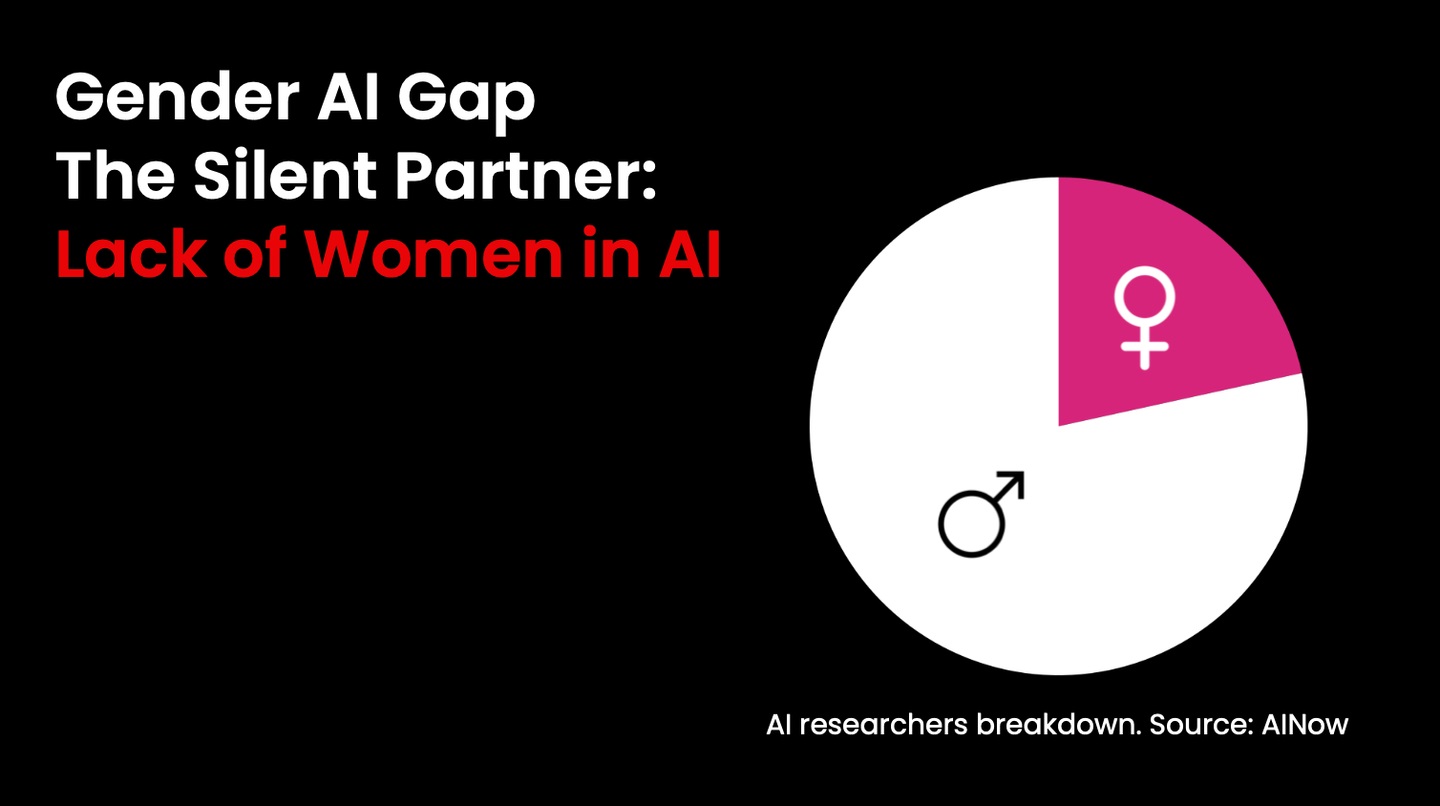Imagine AI and Gender Equality as a couple on a dance floor. They have the potential for a beautiful, coordinated performance, but right now, their steps are out of sync. It’s more of a clogged way where one couple steps over the other’s foot because there’s no understanding of the other.
Recent advancements of AI
AI is rapidly transforming various sectors, from healthcare to finance, transportation to entertainment. Advancements like self-driving cars and protein structure prediction are revolutionizing industries. For instance, Musashi, a robot developed by the University of Tokyo, simulates human movements using artificial muscles and sensors, enhancing the capabilities of self-driving vehicles. Similarly, DeepMind’s AlphaFold continues to revolutionize biology with accurate protein folding predictions, impacting drug discovery and disease understanding.

Moreover, AI is crucial in early disease detection. A team at Harvard Medical School developed EVEscape, an AI tool using deep learning to analyze genetic data and predict virus mutations, aiding in vaccine development and combating diseases like COVID-19.
The lack of Women in AI
Despite these advancements, there’s a significant gender disparity in those who build, govern, and use AI systems.

According to AI Index:
- Globally, only 22% of AI researchers at top AI labs are women
- Over 80% of AI professors are men, highlighting a significant gender imbalance in academic leadership within AI
- On platforms popular among developers, such as GitHub, women make up only 4% of respondents, indicating a stark underrepresentation in the development community
This lack of diversity means that AI systems often do not reflect the needs and perspectives of all users. According to a UN Women report, AI mirrors the gender biases present in society, which can perpetuate and, in some cases, exacerbate existing gender inequalities. The way AI systems are developed and implemented plays a crucial role in either reducing or widening these gender equality gaps.
The case of Taylor Swift and what to learn from it

In January 2024, the troubling potential of AI to be weaponized against women was starkly demonstrated when sexually explicit deepfake images of pop icon Taylor Swift inundated social media platforms. These AI-generated images depicted Swift in compromising situations with Kansas City Chiefs fans and spread rapidly across X (formerly Twitter), Facebook, Instagram, and Reddit.
The proliferation of deepfakes has a profound impact on women’s willingness to engage in public life. It creates an environment of fear and instability, potentially deterring women from pursuing careers in politics, journalism, or other high-profile fields. This chilling effect undermines progress toward gender equality in various sectors.
Moreover, deepfakes can be used to spread disinformation, manipulate elections, and erode public trust. For example, during the 2024 US elections, deepfakes were used to impersonate political figures, spreading false information and undermining the democratic process.
The disturbing deepfake incident involving Taylor Swift is just one example of how AI can be weaponized against women, amplifying gender-based harms. This is not an isolated issue but part of a broader pattern where AI technologies can perpetuate and even exacerbate existing societal inequalities. The real question is: do we, as a society, want this future?
We must consider the roles that different actors—industry, academia, government, and individuals—play in shaping the future of AI. While policy changes are essential to set ethical standards and accountability measures, these alone are not enough. It’s a shared responsibility. We all have a part to play in ensuring that AI development is guided by principles of fairness, inclusivity, and equity.
As we move forward, we must focus on a multi-faceted approach, combining education, diverse representation in AI teams, and the establishment of ethical guidelines. Only then can we create AI systems that serve everyone, rather than a privileged few.
The future of AI is in our hands. It’s not something that will happen to us; it’s something we can create together.
Early Education
Encouraging girls to explore STEM fields from a young age is crucial for bridging the gender gap in AI. Programs like AI4K12 and AI4ALL, are working to make AI education accessible to all students.
Diverse Teams
Prioritizing diversity in AI development teams ensures a range of perspectives. According to the European Institute for Gender Equality, diversity in the AI workforce is central to developing and maintaining AI tools that are gender-sensitive and equitable.
Ethical Guidelines
Establish robust ethical guidelines and regulations for AI development. Defining ethics is complex, so those shaping these guidelines must be diverse. This requires concerted efforts from companies and governments to ensure the right people are involved.
Supporting women’s journey in AI, one woman at a time
At **Women in AI,** we raise awareness about the importance of gender equality in AI. At its heart, WAI focuses on educating and upskilling women of all ages, from school level to senior management roles, with various programs and initiatives to strengthen and highlight the participation and contributions of women in AI and support aspiring female AI professionals.
With the help of a +15,000 community members from over 150 countries, we are on a mission to create a more inclusive and diverse AI field where all of us contribute to innovation and advancement technologies such as AI, that can affect all humanity and life on earth.
Joining the community is completely free and available to all genders and races.

Investing in women and the planet
For the last two years, I have started a community around impact and inclusion called Thousand Faces, on the mission to fund female founders building SDG-impact-focused startups. TF’s main focus is on promoting diversity and inclusion through an Investors Club, connecting visionary investors with gender-diverse startups. Both our Female Founders acceleration program and Impact Angel Investing Program are aimed at creating a more inclusive ecosystem for entrepreneurs and investors in high-impact sectors.
Changing the world starts with a community that believes in a shared vision. To achieve equality and inclusion, we must join hands and work together. Only through unity and collaboration can we move forward and create the world we dream of.





